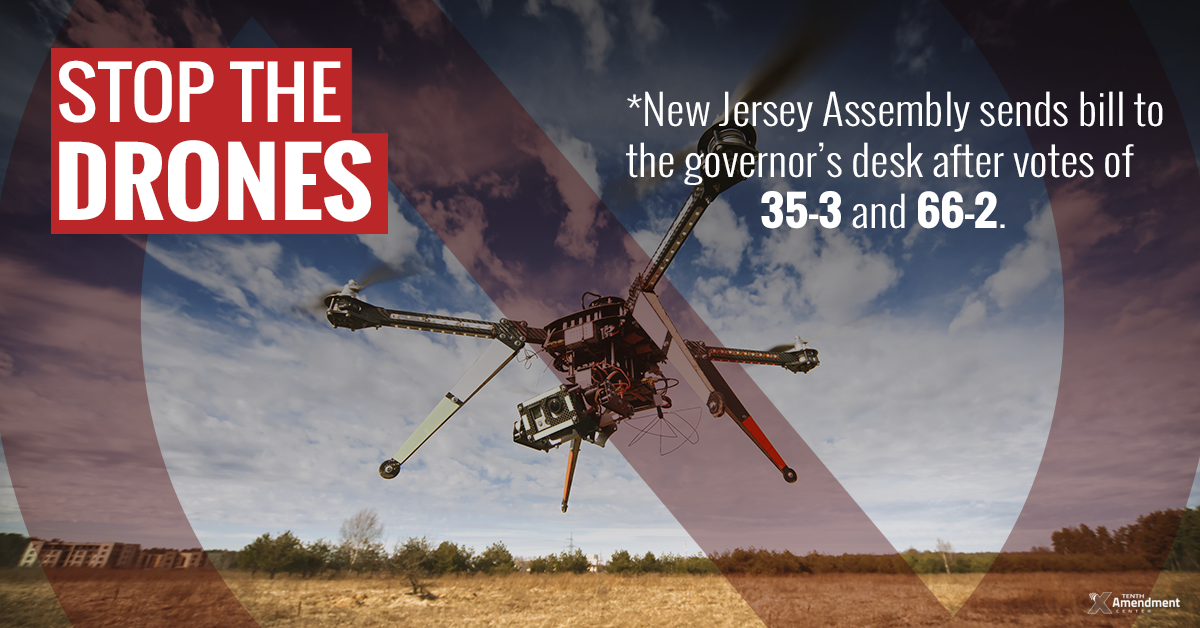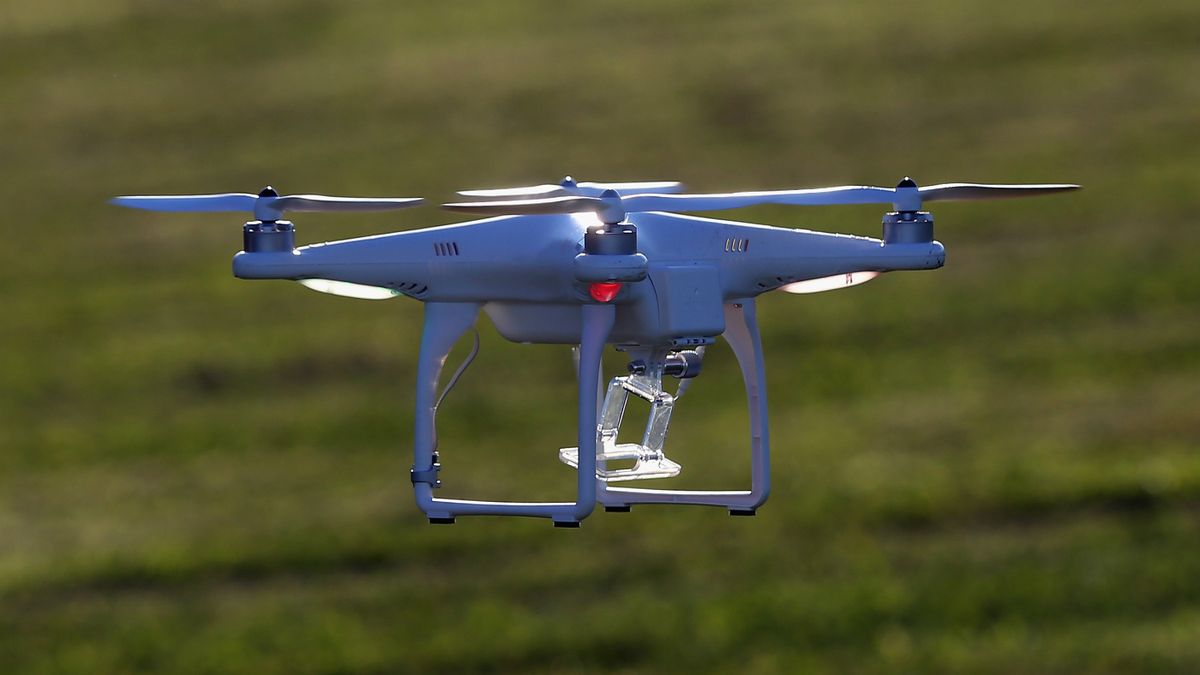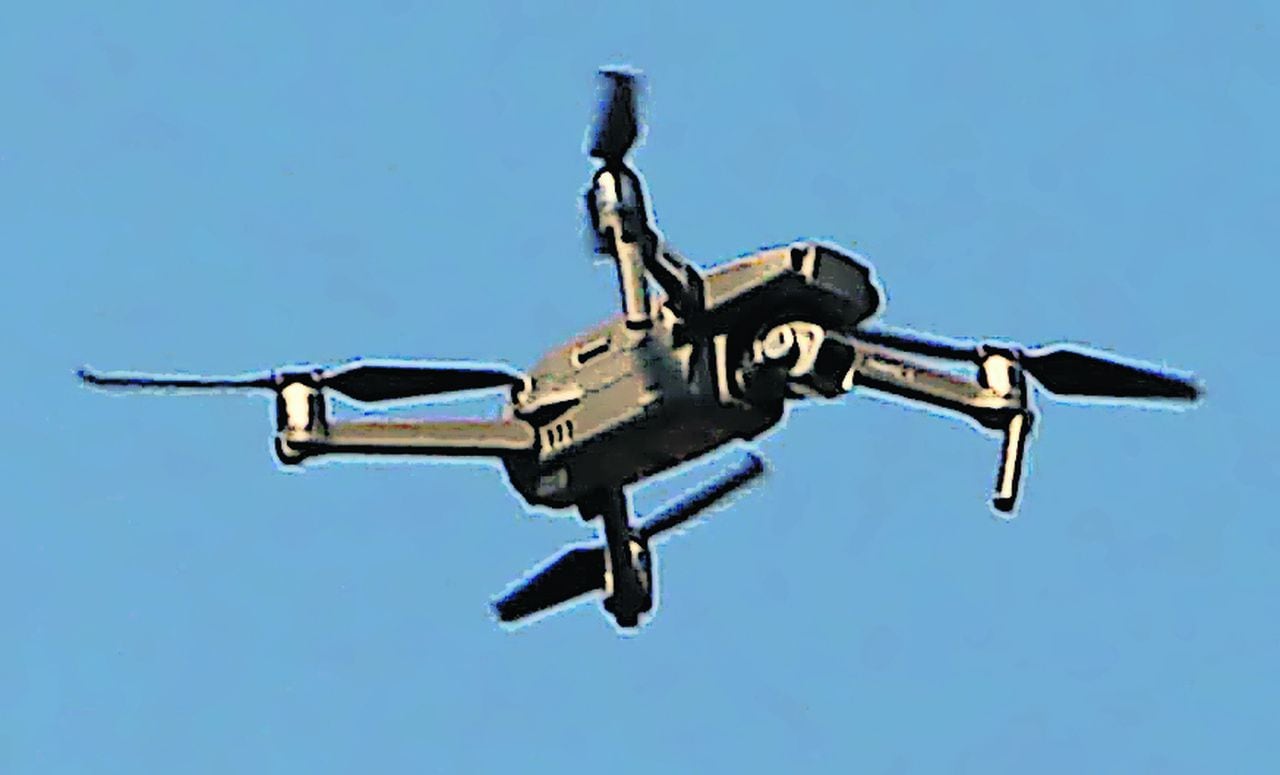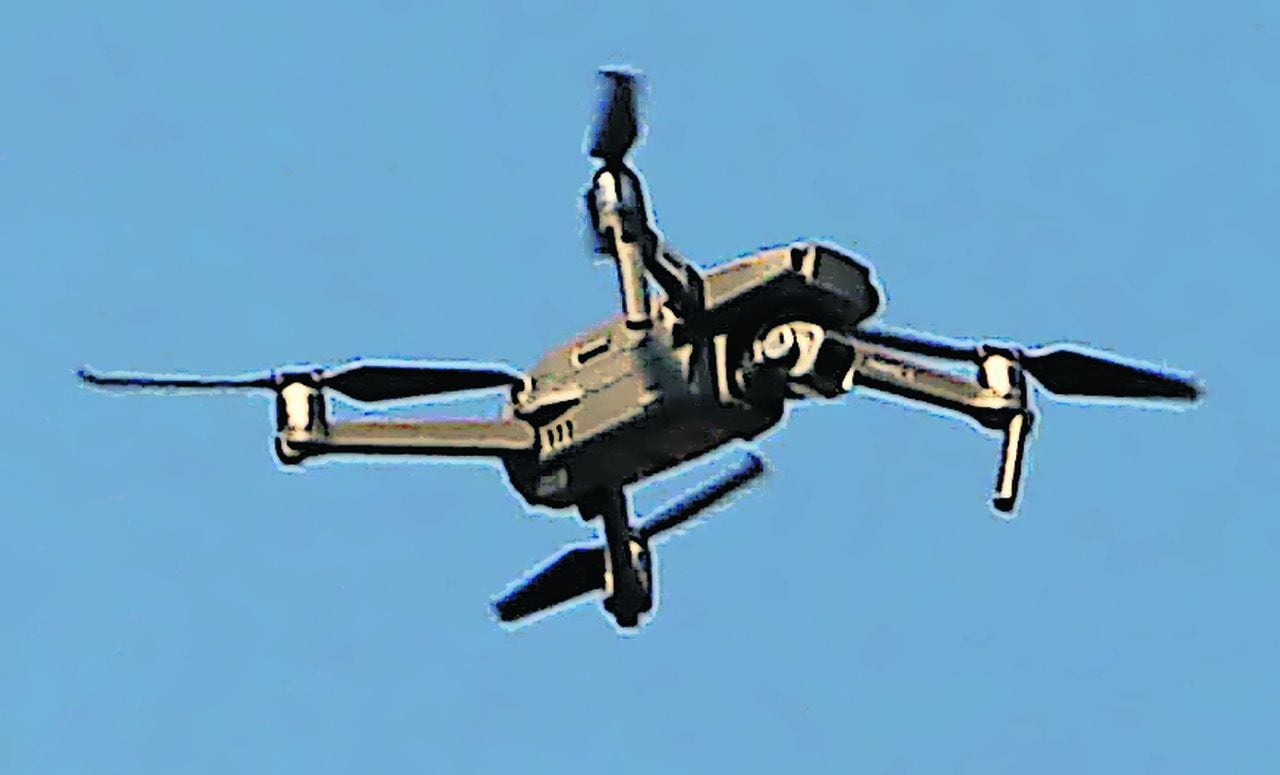Drones Over New Jersey Solved: This comprehensive analysis delves into the recent surge of drone activity in the Garden State, exploring the legal frameworks, public safety implications, and technological advancements aimed at managing this evolving airspace. We examine both the challenges and opportunities presented by drones, from potential threats to infrastructure and emergency services to their innovative applications in various sectors.
The narrative unfolds through a detailed examination of specific incidents, regulatory landscapes, and technological solutions currently deployed or under development.
From analyzing the specifics of recent drone incidents and the legal ramifications to exploring the technological solutions and public perception, this report offers a holistic understanding of the drone landscape in New Jersey. The aim is to provide clarity on the current state of affairs and offer insights into future strategies for responsible drone integration.
Recent Drone Incidents in New Jersey
The past year has witnessed a rise in drone-related incidents across New Jersey, prompting concerns about safety and security. This section details five significant incidents, highlighting their locations, circumstances, and outcomes.
Significant Drone Incidents in New Jersey (Past Year)
| Date | Location | Brief Description | Outcome |
|---|---|---|---|
| October 26, 2023 | Atlantic City | Drone sighted near Atlantic City International Airport, causing temporary flight disruptions. | Pilot identified and fined; airport operations resumed. |
| August 15, 2023 | Newark | Drone crash landed near a school, causing minor property damage. | Investigation ongoing; drone operator yet to be identified. |
| June 10, 2023 | Princeton | Drone flew over a restricted area near a military base. | Drone seized; operator faced federal charges. |
| March 5, 2023 | Trenton | Drone interfered with emergency helicopter response to a building fire. | Significant delays in emergency response; investigation underway. |
| January 20, 2023 | Hoboken | Drone captured illegal footage of a private residence. | Privacy lawsuit filed; civil penalties assessed against the drone operator. |
Types of Drones Involved
- Consumer-grade quadcopters
- Modified commercial drones
- Unidentified drone models
Legal and Regulatory Aspects of Drone Use in New Jersey
New Jersey, like other states, has established regulations governing drone operation to ensure public safety and privacy. This section Artikels these laws, compares them to neighboring states, and illustrates the process for obtaining commercial drone operation permits.
New Jersey Drone Laws and Regulations
New Jersey’s drone laws are largely in line with Federal Aviation Administration (FAA) regulations. Key aspects include registration requirements for drones weighing over 0.55 pounds, restrictions on flying near airports and other sensitive areas, and limitations on nighttime flights. Specific regulations concerning privacy and data collection are also in place. Penalties for violations range from fines to criminal charges, depending on the severity of the offense.
Comparison with New York Drone Laws

While both New Jersey and New York adhere to FAA guidelines, New York has enacted stricter regulations regarding drone operation near critical infrastructure, such as power plants and water treatment facilities. New York also has a more comprehensive framework for addressing privacy concerns related to drone surveillance. Both states require drone registration with the FAA.
Recent reports indicate that the issue of unauthorized drones over New Jersey has been largely resolved through a combination of stricter regulations and increased enforcement. Understanding the reasons behind these actions requires examining the frequency of incidents, such as those detailed in this report on drone crashes in New Jersey , which highlighted safety concerns and the need for improved drone operation practices.
The proactive measures taken have significantly contributed to safer skies over the state.
Flowchart for Commercial Drone Permits in New Jersey
Obtaining a commercial drone permit in New Jersey involves several steps: First, the operator must obtain a Part 107 Remote Pilot Certificate from the FAA. Then, they need to register their drone with the FAA. Next, they must file a flight plan with the appropriate authorities, specifying the location, date, and purpose of the flight. Finally, they must obtain any necessary permits or approvals from local agencies or landowners, depending on the flight location.
A failure to comply with any of these steps can result in penalties.
Public Safety Concerns Related to Drones in New Jersey: Drones Over New Jersey Solved
The unauthorized or reckless use of drones poses significant public safety risks. This section examines these threats and Artikels measures being implemented to address them.
Threats to Public Safety from Unauthorized Drone Use
Unauthorized drones can interfere with emergency services, such as police and fire response, by obstructing aerial views or causing confusion. They can also pose a risk of collision with aircraft or people, leading to accidents and injuries. Additionally, drones can be used for malicious purposes, such as delivering contraband or conducting surveillance.
Law Enforcement Response to Drone-Related Safety Concerns
New Jersey law enforcement agencies are increasingly employing counter-drone technologies to detect and neutralize unauthorized drones. Training programs are also being implemented to equip officers with the knowledge and skills to effectively manage drone-related incidents. Collaboration with the FAA and other state agencies is crucial in addressing these challenges.
Successful Strategies in Other States
Other states have implemented successful strategies, such as establishing no-drone zones around critical infrastructure and deploying drone detection systems in high-risk areas. Public awareness campaigns have also played a crucial role in educating the public about safe and responsible drone operation. For example, California’s proactive approach to establishing clear regulations and strong enforcement has been effective in minimizing drone-related incidents.
Technological Solutions for Drone Monitoring and Control
Several technologies are being employed to detect and track unauthorized drones. This section explores these technologies, their limitations, and potential solutions.
The recent spate of unauthorized drone activity over New Jersey has thankfully been resolved. Investigations often focus on identifying the drone models involved, and in some cases, this might lead to the discovery of models similar to the shahed drone , known for its relatively simple design and potential for unauthorized use. Ultimately, understanding the specific type of drone used helps authorities enhance security measures and prevent future incidents over New Jersey airspace.
Drone Detection and Tracking Technologies
Various technologies are used for drone detection, including radar systems, radio frequency (RF) sensors, and optical/infrared cameras. These systems can detect drones based on their radio signals, visual appearance, or thermal signatures. Advanced systems integrate multiple sensor types for enhanced detection capabilities and improved accuracy. Sophisticated AI algorithms are employed to analyze sensor data and distinguish between authorized and unauthorized drones.
Limitations and Solutions, Drones over new jersey solved
Current technologies face limitations, including interference from other RF signals, limited range, and difficulties in identifying the operator of the drone. Solutions include developing more sophisticated algorithms to filter out false positives, improving sensor sensitivity and range, and integrating GPS tracking to locate drone operators. The use of counter-drone technology, such as jamming or spoofing signals, also plays a crucial role, but ethical and legal considerations must be carefully addressed.
Comparison of Drone Detection Systems
| System Name | Detection Method | Advantages | Disadvantages |
|---|---|---|---|
| Radar System | Radio waves | Long range, can detect drones in various weather conditions | Can be expensive, susceptible to interference from other radar signals |
| RF Sensor | Radio frequencies | Relatively inexpensive, can identify specific drone models | Limited range, vulnerable to signal jamming |
| Optical/Infrared Camera | Visual and thermal imaging | High resolution images, can identify drone type and operator | Limited range in low-light conditions, susceptible to weather interference |
Impact of Drones on New Jersey Infrastructure
Drones are transforming various sectors in New Jersey, offering both benefits and challenges to its infrastructure. This section explores these impacts across transportation, construction, and utilities.
Positive and Negative Impacts on Infrastructure
Drones offer significant advantages in infrastructure inspection and maintenance, reducing costs and improving safety. They can be used to inspect bridges, power lines, and pipelines, identifying potential issues before they escalate into major problems. However, the increasing use of drones also raises concerns about security risks, potential for accidents, and the need for robust regulatory frameworks to manage their operation safely and effectively.
Examples of Drone Use in Infrastructure

Drones are being used to inspect the structural integrity of bridges across New Jersey, providing detailed images and data that can be used to plan maintenance and repairs. Utility companies are using drones to monitor power lines, detecting faults and potential hazards before they cause outages. Construction companies are utilizing drones to monitor progress on large-scale projects, ensuring adherence to timelines and safety standards.
Economic Implications
The widespread adoption of drone technology in New Jersey is expected to create new economic opportunities, particularly in the fields of inspection, surveying, and delivery services. However, it is also important to consider potential job displacement in some sectors and the need for investments in training and infrastructure to support the growth of the drone industry. The economic impact will likely be a complex interplay of positive and negative factors.
Public Perception and Awareness of Drones in New Jersey
Public opinion on drone use varies. This section explores public perception, understanding of regulations, and proposes a public awareness campaign.
Public Opinion Surveys and Reports

While comprehensive, publicly available surveys specifically focusing on New Jersey residents’ opinions on drones are limited, anecdotal evidence suggests a mixed public perception. Many appreciate the potential benefits of drones in various sectors, such as infrastructure inspection and emergency response. However, concerns remain regarding privacy violations, safety risks, and the potential for misuse. More detailed research is needed to fully understand the nuances of public opinion.
Hypothetical Scenario and Public Reaction
Imagine a scenario where a drone crashes into a crowded park, causing minor injuries. Initial public reaction might be one of alarm and concern, with many questioning the safety regulations surrounding drone operation. However, depending on the transparency of the investigation and the measures taken to prevent future incidents, public opinion could shift towards a more measured response, focusing on improved safety protocols and better enforcement of existing regulations.
Infographic on Drones in New Jersey
An infographic could depict key facts and figures about drones in New Jersey, including the number of registered drones, common uses, relevant regulations, and safety measures. It could also highlight successful drone initiatives and emphasize the importance of responsible drone operation. Visual elements such as charts, graphs, and icons would make the information easily accessible and understandable for the general public.
In conclusion, the issue of drones over New Jersey is far from a simple one, encompassing legal complexities, technological hurdles, and crucial public safety considerations. While challenges remain, the ongoing development of detection and control technologies, coupled with evolving regulations and increased public awareness, points toward a future where drones can be safely and effectively integrated into New Jersey’s airspace.
The key lies in proactive collaboration between government agencies, technology developers, and the public to establish a balanced approach that harnesses the benefits of drone technology while mitigating potential risks.
Expert Answers
What are the penalties for illegal drone operation in New Jersey?
Penalties vary depending on the violation but can include fines, license suspension, and even criminal charges.
Where can I find information on registering my drone in New Jersey?
Information on drone registration is typically found on the FAA website, as federal regulations apply. State-specific requirements may also exist; check the New Jersey State Police website for updates.
Are there any specific areas where drone flight is completely prohibited in New Jersey?
Yes, airspace near airports, critical infrastructure, and sensitive locations like prisons are typically restricted. Check the FAA’s B4UFLY app for real-time airspace restrictions.
